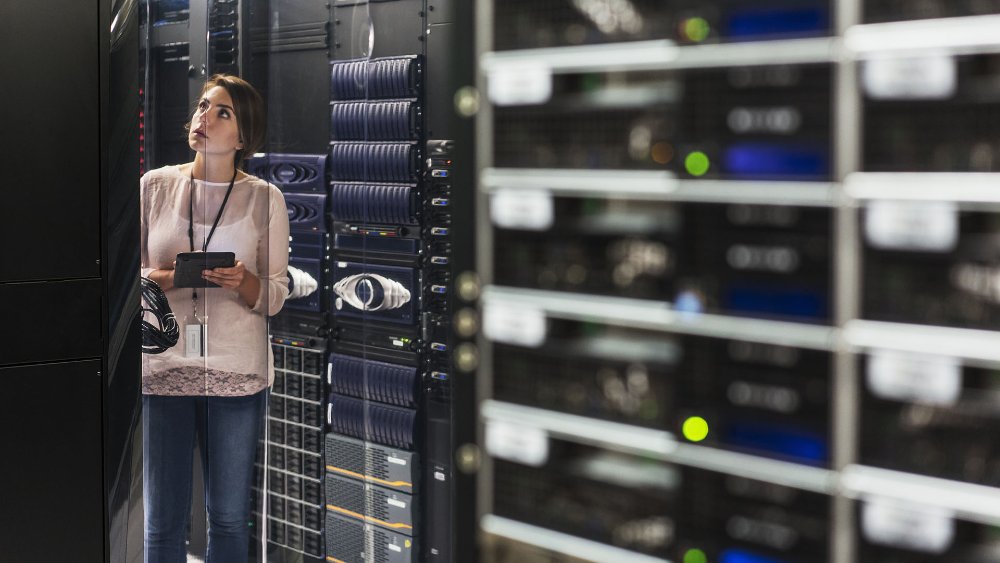
A diverse workforce is key to driving innovation, boosting creativity and unlocking financial success. It’s no secret that today’s workforce is more diverse than ever, by just about every measure – race, ethnicity, age, gender, religion, disability, sexual orientation, veteran status, gender identity and more. This dynamic talent pool brings immense advantages in the form of varied perspectives, outlooks, communication styles and approaches to problem-solving.
Employers have been casting a broad net with the goal of cultivating a diverse workforce. Not only will it give the organization a competitive edge, but it provides a richer experience for clients, customers and colleagues. Increasingly, however, leaders are recognizing it takes more than competitive pay and benefits to deliver a stellar employee experience for today’s diverse and dynamic workforce. Rather, employers must be flexible and adopt a personalized approach. By ensuring each employee’s unique needs are addressed through an inclusive benefits strategy, they are granted every opportunity to live their best lives at work and at home.
Wellbeing matters
Wellbeing is the cornerstone of our lives. When we perceive our wellbeing positively, we reap many benefits, including reduced incidences of cardiovascular disease, stroke and sleeping problems. We also experience a boost in productivity and creativity in both our professional and personal lives. In short, having high levels of wellbeing helps us be our best selves.
In the workplace, the impact of wellbeing is significant. When an employee’s wellbeing is poor, they get burned out easily, struggle to perform their duties and are more likely to leave the company. When their wellbeing is thriving, they take fewer sick days, perform at a higher level and have lower rates of burnout and turnover.

Wellbeing is a crucial component of the employee experience – and workers are increasingly demonstrating an unwillingness to stay with a company that doesn’t prioritize wellbeing. More than three-quarters (77%) of employees say they would consider leaving a company that doesn’t focus on wellbeing.
Despite increased employer investments in wellbeing, just 43% of employees say their company supports them with resources to better manage and improve their wellbeing, according to the 2023 Alight International Workforce and Wellbeing Mindset Study. Even more concerning, less than half (46%) feel their employer would have their back if they experienced a wellbeing challenge, and more than a quarter (27%) have lost trust in their employers’ wellbeing efforts. Perhaps most disheartening, only 41% of employees believe their company genuinely cares about their wellbeing. That should weigh heavily on the minds of all employers.
The link between wellbeing and retention is clear, as is the need for employers to better engage employees with their benefits so workers will be equipped to achieve their wellbeing goals and the organization will reap a return on its investment. Fortunately, tech-enabled solutions offer a personalized approach to transforming the benefits experience.
Embrace technology
Increasingly, organizations are leveraging technology for everything from streamlining work and improving efficiency to empowering employees to make better decisions that will enhance their wellbeing. Over the past few years, technology has come to play an even greater role. If it weren’t for video conferencing, for example, many companies would have not been able to continue functioning during pandemic-era lockdowns. Meanwhile, artificial intelligence (AI) has taken the workplace by storm, as organizations discover its incredible potential to aid in decision-making, performance management, risk assessment and more.
When it comes to technology, one thing is for certain: employees expect the same intuitive, personalized experience in the workplace that they receive as a consumer. Nowhere is this truer than when interacting with their benefits where people traditionally spend little time until there is a moment of need. Employers can easily boost awareness and utilization by providing a one-stop shop that gives employees personalized access to all their benefits information via single sign-on whenever and wherever they choose.

Personalization across all four pillars of wellbeing – mind, body, wallet and life – is an absolute must for today’s diverse and dynamic workforce. Much like Amazon and Netflix provide helpful recommendations based on past usage, AI-powered platforms like Alight Worklife®, deliver personalized notifications that nudge employees to take action at pivotal times – such as adding a new dependent to their health coverage because they recently took maternal/paternal leave or scheduling their annual physical when records show it’s been nearly a year since their last check-up.
Personalization empowers employees by reaching them in the moments that matter with tools, resources and guidance that meet their specific situation. Meanwhile, an experienced care team of certified nurses, clinicians, financial planners and others provide the much-needed human touch. This empowers employees to take control of the situation and supports them through decisions big and small, resulting in better health, a greater sense of connectedness and overall improvements in engagement.

Consider how, not where people work
The case for bringing employees back to the office is compelling, with many leaders claiming productivity, collaboration and engagement will be improved. Yet, findings from the 2023 Mindset Study suggest otherwise. Employees working from home are not only happier, they’re also more engaged and productive than their work-from-office counterparts. When asked how often they’re able to be fully productive while working, 76% of work-from-home employees said always, almost always or often, compared to 69% of those working from the office or onsite.
Remote and hybrid workers also vastly outpace their office-bound counterparts when it comes to feeling a sense of belonging, positive energy and excitement and being connected to the purpose or mission of the company. This dispels another popular myth, that employees working from home don’t feel connected to company culture or mission and struggle to build a community with their colleagues.
They also rate their wellbeing much higher across all measures — including social wellbeing — disproving the theory that working remotely results in isolation and loneliness.
They’re serious in their determination to continue in that arrangement, too. One-third of U.S. employees say they would look for another job if their employer asked them to return to the office even half of the time, while 10% say they would resign immediately.
As employers make key decisions about where their people will work, therefore, it’s crucial not to adopt a knee-jerk “return to office” mandate, but rather base their decision on actual business need and worker preference. Delivering a positive employee experience is key and allowing employees to work remotely, when possible, may result in greater retention and a happier, more engaged and productive diverse and dynamic workforce.


